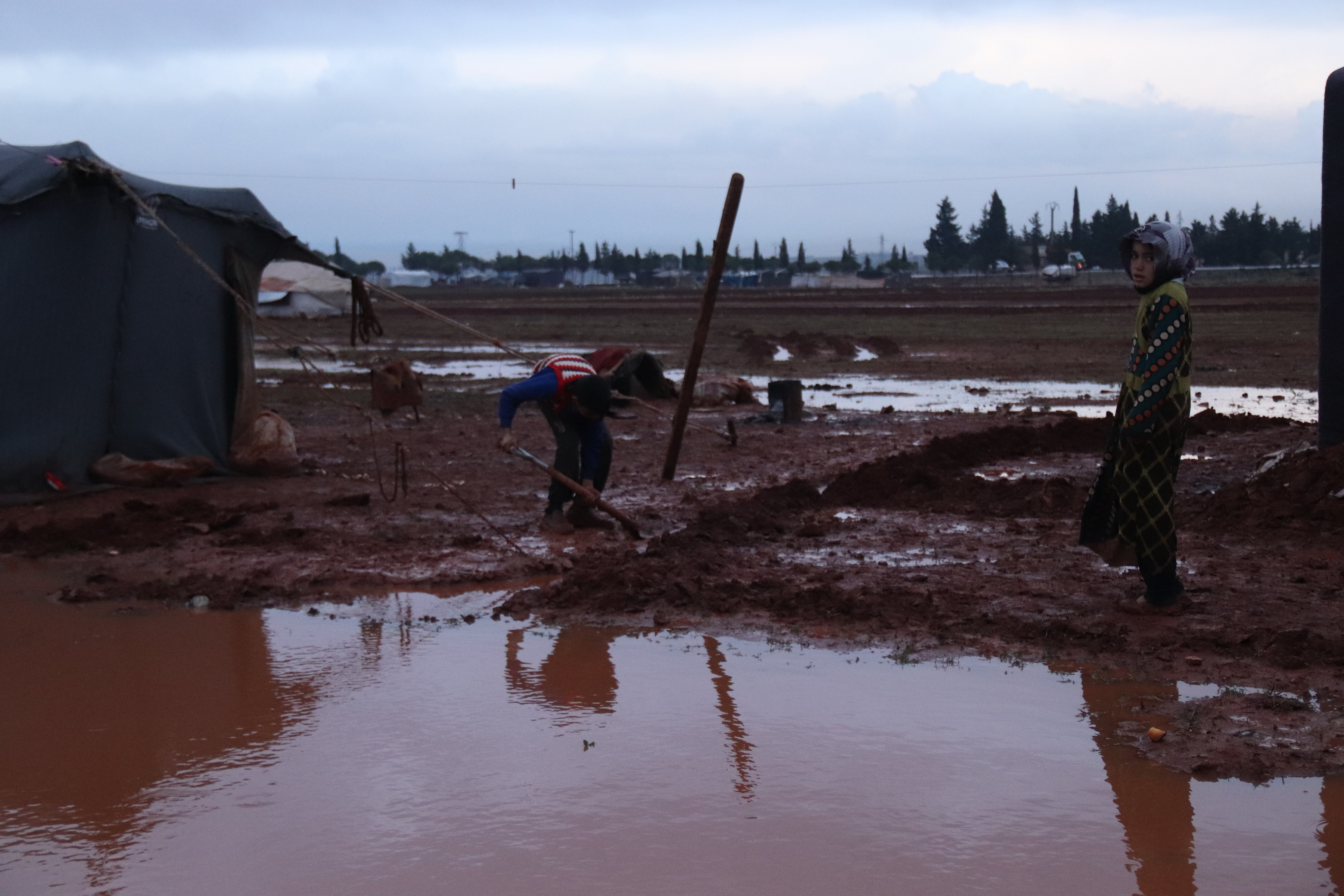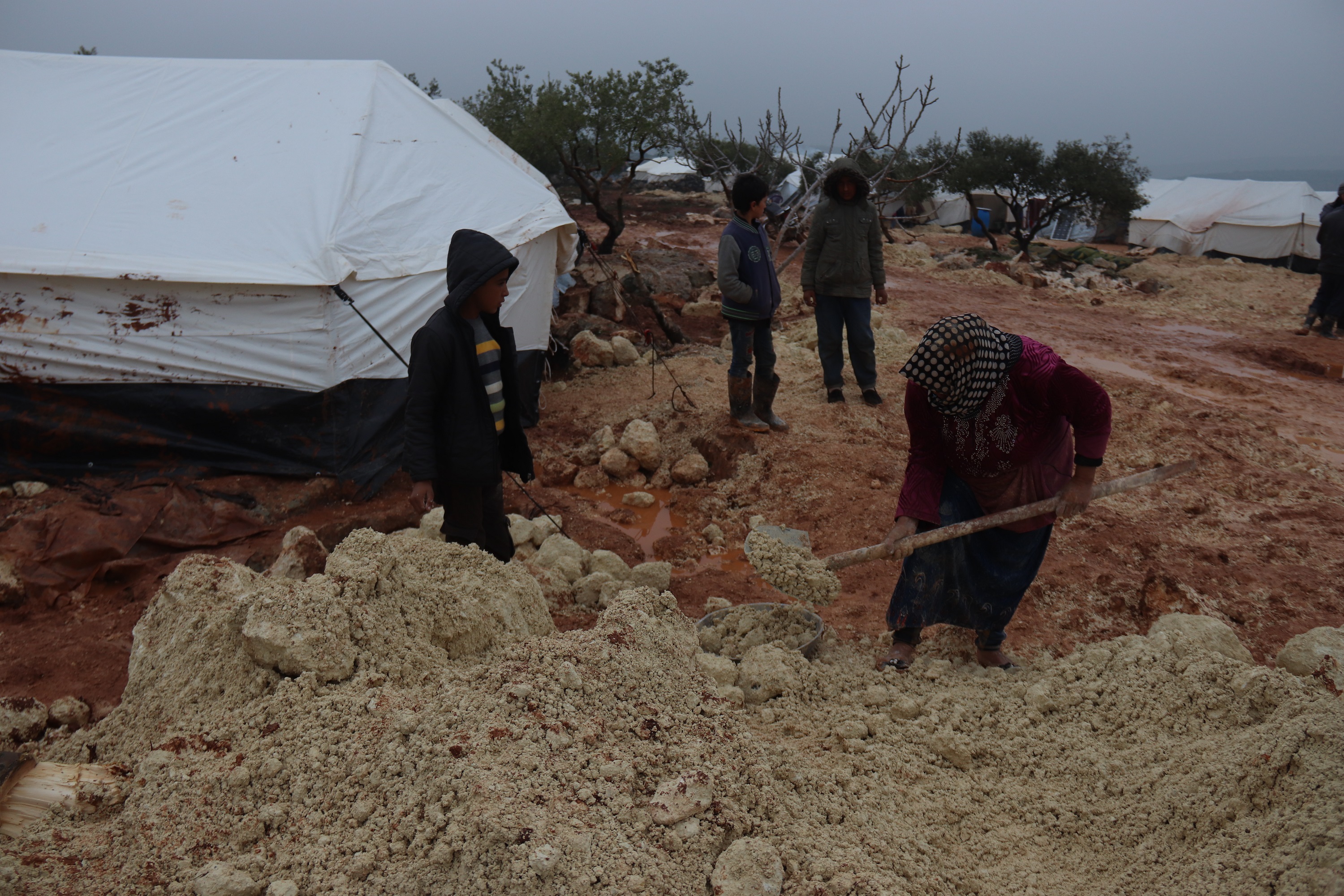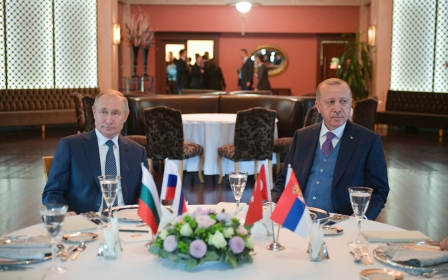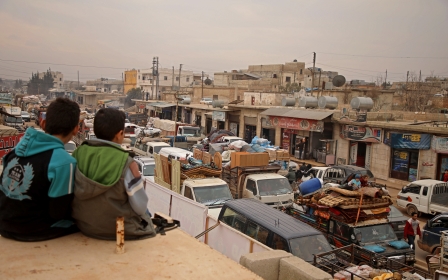In a threadbare Idlib displacement camp, women’s dreams are shattered
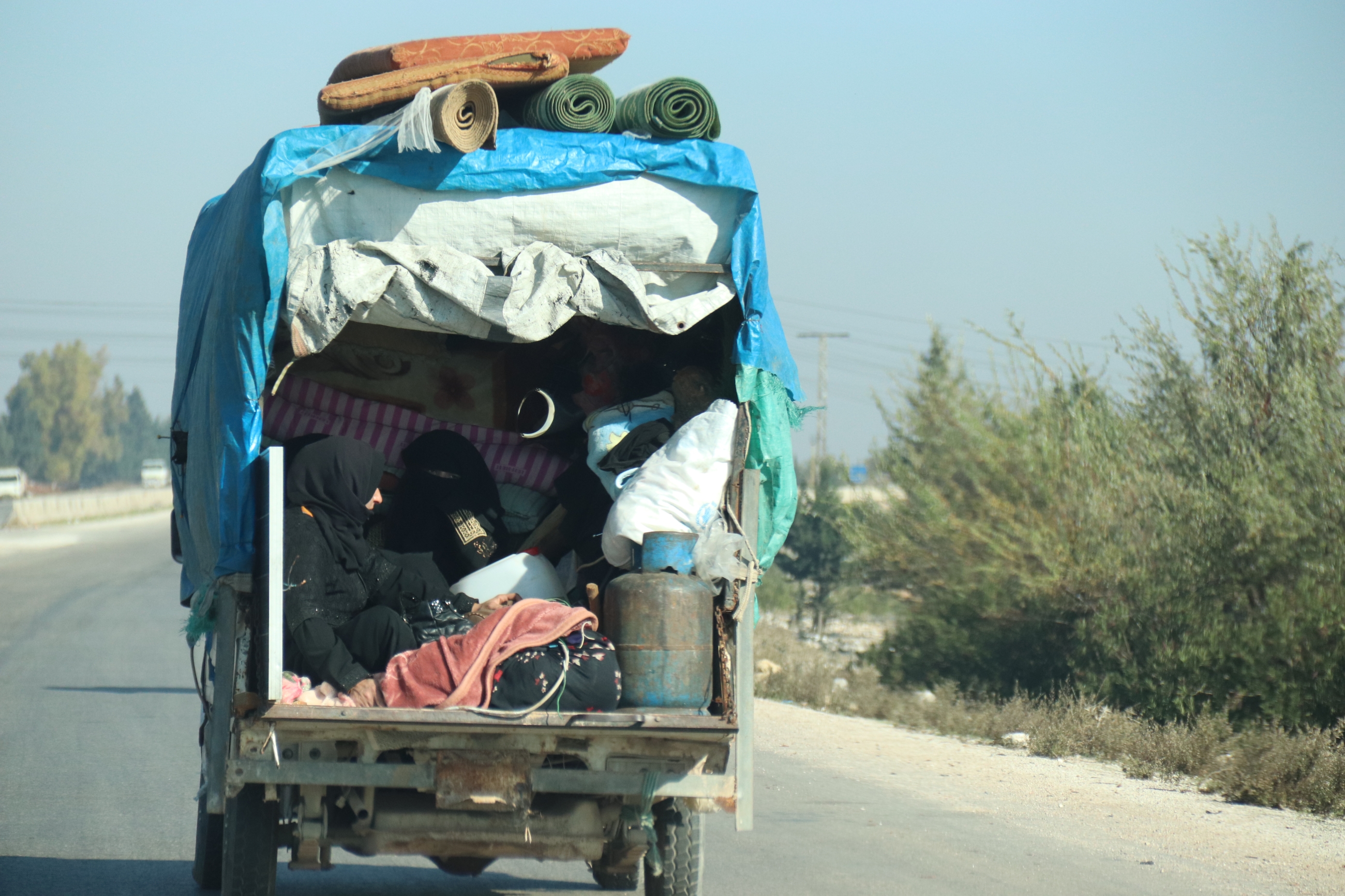
Nadia’s daily existence is one hemmed in by the confines of a makeshift tent she shares with seven other family members.
She, her husband, their children, her sister and four nieces and nephews fled their hometown of Saraqeb in southern Idlib province one month ago to seek safety from increased Syrian and Russian bombardment.
The family ended up in Sarmada, a town in northern Idlib just a short drive from the Turkish border, and home to informal displacement camps.
Without money to pay rent for a house, they ended up in one of the nearby camps. Nadia’s husband soon left for Turkey in search of work, leaving his wife and sister-in-law to care for the six young children. With no income of her own, 25-year-old Nadia feels trapped.
'This tent is now my entire existence'
- Nadia, 25
On one bitter day in late January, the family members huddled inside their tent, which sits in an already crowded camp.
New MEE newsletter: Jerusalem Dispatch
Sign up to get the latest insights and analysis on Israel-Palestine, alongside Turkey Unpacked and other MEE newsletters
There is little for them in Sarmada.
“It’s impossible to feel comfortable here,” Nadia told MEE, sheltering from the cold. Her children shouted over her as she spoke.
“It is very loud here, and there aren’t any bathrooms or other facilities.”
Nadia and her sister, Khadija, whose husband was killed in a bombing in December, said they dream of living in a real house again.
Nadia only lived that dream for a month before she was forced to flee north - the house that she and her husband had spent years saving to build was finally completed late last year.
They were displaced just one month later.
“This tent is now my entire existence,” Nadia said.
Nowhere else to go
Idlib is in the midst of its most devastating displacement crisis yet. A ramped-up offensive by pro-government forces is sending remaining residents fleeing their homes by the hundreds of thousands, and leaving behind ghost towns decimated by bombs.
Those now eking out a life in the towns and underserved makeshift camps along Syria’s northwestern border with Turkey are overwhelmingly women and children, according to the United Nations and local camp administrators.
In a press briefing on Monday, Stephane Dujarric, spokesman for the UN secretary-general, said women and children make up about 80 percent of those displaced since the most recent bout of bombardment started in December.
Some 37,000 of those who fled in January are children, according to UK-based charity Save the Children.
In Sarmada, where Nadia and her family are surviving in their makeshift tent, local displacement camp administrator Mohammed al-Sheikh told MEE that of the 170 families living there, 40 are headed by widows or single mothers. Nearly half of them arrived at the informal camp since the beginning of February.
They are among the more than half a million people to flee their homes in the past two months, seeking safety from the assault, according to the latest UN count.
That number is likely to rise as pro-government forces continue to advance on Idlib’s southern countryside, pummelling its towns and villages with air strikes and artillery fire. Nearly 200 people were killed in January, according to local media group Macro Media Center.
Syria’s northwestern Idlib province, as well as rural parts of neighbouring Latakia and Aleppo, makes up the last major enclave of rebel-held territory in the country following years of military victories by forces loyal to Damascus. The area is largely controlled by hardline Islamist group Hay’at Tahrir al-Sham.
For years, Idlib has been the final endpoint for hundreds of thousands of Syrians coercively displaced from Aleppo, rural Damascus and elsewhere, as government forces, backed by Russia, seize pocket after pocket of rebel control in deadly succession.
The pattern: siege, bombardment, then convoys of buses dispatched to send remaining civilians and fighters to the country’s rebel-held northwest.
But with only Idlib remaining, there is nowhere else to go. Some three million people are now living in the area, roughly half of them displaced from elsewhere in Syria, with hundreds of thousands of them huddled along the province’s border with Turkey, seeking shelter in rented homes and informal encampments.
The bombardment has only intensified in recent weeks, as pro-government forces, backed by Russian airpower, vie to seize towns along a pair of strategic highways that cross Idlib.
Last week, government forces retook Maaret al-Numan, a strategic town, also cutting parts of the M5 highway that connect Aleppo to Damascus.
The result has been devastating for residents living along the frontlines. Lines of cars, trucks and farm tractors piled high with any personal belongings that can fit have trailed out of southern Idlib province for weeks amid the escalation, as remaining residents flee.
In one video posted to Twitter on Tuesday night, a street in Idlib province appeared clogged to near standstill with traffic as vehicles streamed out.
Matriarchs
Among those who have recently fled are women who have left their homes on their own and are now fending for themselves along the Turkish border.
Any work opportunities for them are scarce, with one woman telling MEE she simply sells dried herbs for money.
Umm Fouad is doing what she can to raise her 13-year-old daughter and 10-year-old son in the makeshift camp outside Sarmada, near Nadia’s tent.
On one January day, she sat and chatted with other women as they gathered plastic chairs on the dirt floor.
A pile of fleece blankets sat bunched in the corner; there was no heater. She has been on her own, she said, since her husband left her to marry another woman. A year later, an air strike on her hometown of Khan Sheikhoun tore off her leg.
After a neighbour helped transport her and her children north, she now lives in Sarmada, with a prosthetic leg provided to her for free by a nurse.
Umm Fouad cannot easily walk, and has yet to find a source of income. She relies on donations to feed herself and her children in the camp.
Her dream, she said, is simply to return to Khan Sheikhoun, “where all my memories are”.
Return, however, is an unlikely prospect for now - the city has been under government control since its recapture by Assad’s forces last summer. It was left a ghost town, with many of its buildings flattened.
Near Umm Fouad’s tent in Sarmada, 43-year-old Sanaa also dreams of going home. Her house sits in Hass, a town in rural southern Idlib province that has been the target of heavy bombing.
One recent bombing killed her youngest daughter, and critically wounded her husband, who now uses a wheelchair due to his shrapnel wounds.
With few options for work other than manual labour, Sanaa and her husband send their 15-year-old son to work in a car repair shop, where he earns $1 per day.
“Displacement is hard on anyone,” Sanaa told MEE in her tent inside the camp. “But for women, when she’s running things along without a husband, it’s an extra burden - a social burden, and a responsibility to care for the children all alone.
“I just want to go back home, and watch my children play in the garden like they used to.”
Middle East Eye delivers independent and unrivalled coverage and analysis of the Middle East, North Africa and beyond. To learn more about republishing this content and the associated fees, please fill out this form. More about MEE can be found here.


